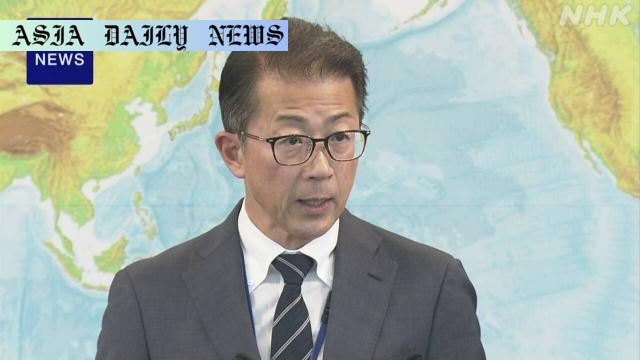Imperial Succession: Japan defends male-only throne rule, UN critique rejected.
UN Committee on the Elimination of Discrimination against Women recommended changes to Japan’s male-only Imperial succession law.
Japanese Foreign Ministry argued throne eligibility falls outside basic human rights and rejected the committee’s critique.
The government restricted voluntary funds to the UN committee’s activities and canceled its members’ scheduled visits.

Introduction: The Gender Equality Debate in Imperial Succession
The Japanese government has found itself at the center of an international debate following a United Nations committee’s recommendation to revise its Imperial House Law. This law, which governs imperial succession, mandates that only male heirs from the paternal line be eligible for the throne. The recommendation came from the Committee on the Elimination of Discrimination against Women, pushing Japan to ensure gender equality in its laws. The response from Japan has raised eyebrows globally, as it challenges the UN committee’s jurisdiction over what it deems to be a domestic matter fundamental to the state’s structure.
What the UN Committee Recommends
In October last year, the UN Committee on the Elimination of Discrimination against Women highlighted the male-only succession requirement as an area requiring change. Stating that the existing system undermines gender equality, the committee urged Japan to consider reforms to its Imperial House Law. This suggestion placed Japan in a difficult position, as altering this law would not only challenge centuries of tradition but also ignite vigorous public debate on the nature and future of its monarchy.
Japan’s Firm Response
This week, Foreign Ministry Press Secretary Kitamura Toshihiro addressed the issue, offering Japan’s rebuttal to the UN’s recommendation. Kitamura clarified that the government does not view the Imperial House Law as discriminatory. He noted that throne eligibility does not constitute a basic human right and is instead deeply tied to Japan’s identity and state structure. As such, the government believes it is wholly inappropriate for the UN committee to scrutinize this aspect of Japanese governance.
Financial Implications for the United Nations
In a rare move, Japan has requested that its voluntary contributions to the Office of the High Commissioner for Human Rights (OHCHR)—the body overseeing the committee—not be allocated to the committee’s operations. Additionally, the government has asked the office to cancel planned visits by committee members during this fiscal year. Japan typically contributes between $130,000 and $200,000 annually to the OHCHR, although the funds have reportedly not been used for the committee’s efforts since 2005.
The Cultural and Historical Context
The Imperial House Law is deeply rooted in the cultural and historical identity of Japan. Historically, the Japanese monarchy is the world’s oldest hereditary monarchy, tracing its origins back over 2,600 years. The legal stipulation requiring male-only succession has been a consistent feature, and any potential reforms are likely to face opposition from conservative factions within the country. Both the preservation of tradition and the expectations of modern democracy weigh heavily in this debate, making the issue a uniquely complex one.
Global Ramifications and Domestic Reaction
Internationally, Japan’s response sets a powerful precedent for how sovereign nations may interact with global human-rights organizations. By limiting funding and restricting influence, Japan risks drawing criticism for what may be perceived as resistance to international norms of gender equality. Domestically, the response has highlighted divisions within Japan. While progressive groups within the country have long called for a reevaluation of the male-only rule, conservative voices argue that such changes undermine Japan’s legacy and identity.
The Broader Debate on Gender Equality
The issue also feeds into the larger, ongoing global discourse on gender equality. While many nations have embraced reforms to actively dismantle gender-based traditions, Japan finds itself in a unique position where cultural identity and historical precedence clash with modern values. The outcome of this debate could influence how other monarchies and traditional institutions navigate a similar balancing act between tradition and progress.
Moving Forward
Looking ahead, Japan’s approach to addressing these recommendations could have long-term ramifications. While the government’s immediate response seeks to maintain tradition and assert sovereignty, the growing call for modernization and equal representation cannot be ignored indefinitely. The challenge lies in finding a resolution that bridges the gap between respecting historical identity and embracing global norms of equality.
Commentary
Japan’s Dilemma: Tradition vs. Modernity
Japan’s response to the UN recommendation illuminates the tension between maintaining long-standing traditions and adapting to modern, global standards of equality. The Imperial House Law is more than just a piece of legislation; it represents a cornerstone of Japanese identity, connecting the present to a lineage stretching back thousands of years. Changing such a law is understandably a delicate matter.
A Controversial Stand
By challenging the UN committee’s authority to question imperial succession, Japan is asserting its sovereignty in a firm but controversial manner. This decision reinforces the idea that not all aspects of a nation’s culture and governance can be subjected to universal principles, such as gender equality. It also places Japan in an increasingly precarious position as global eyes watch its adherence—or lack thereof—to international standards.
The Road Ahead
As debates on gender equality and tradition continue, Japan faces a critical journey ahead. Striking a balance between adequately addressing the modern demand for equality and preserving the dignity of its imperial system is no small task. While the nation seems resolute now, one wonders if time and global pressure will eventually necessitate some form of compromise. Regardless of the outcome, this key issue is sure to shape Japan’s domestic and international image for years to come.


